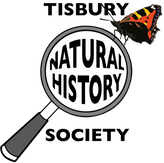|
Midsummer is usually a time when I see fewer birds in my garden. Until recently, the sparrows had been evident as they busily created, and then fed, their brood and sparring blackbirds defended their territories. But things seem much quieter now. There may be plenty of food in the garden and countryside that they do not need to visit the bird feeder, or they may be keeping closer to cover because the adults are starting to moult.
There has been much debate about the benefits, or otherwise, of putting food out for birds in our gardens and whether we are interfering with their natural survival rates. In the UK, we collectively put out astonishing amounts of food for our birds. It allows us to see birds close-up, get a better look at their plumage and movement, which helps us to identify them more easily in the field. Of course, we all hope that in providing food we are helping them to thrive and at least maintain a stable population. Much research has been done and the consensus seems to be that garden feeding is supplementary, that is, the birds do not wholly depend upon it and can survive without it although extra food can improve over-winter survival in several species. There is no evidence that habitual use of feeders causes birds to lose the ability to forage in the wild. It is true that those species which use feeders have been more successful, while the populations of those that do not have been more stable, but our feeding is just one positive environmental change which is more an offset against the many other negative ones. So, while it appears we have no need to worry about whether to feed, what is important is the way we feed the birds. Gathering many species to feed together in a way that they would not do naturally, risks spreading disease and making them a target for predators. We need to offer the best quality food we can afford, ideally putting out no more than the birds can consume within the day. A mix of different foods will support a variety of species, while your garden’s plants can help by providing invertebrates, seeds, nuts, hips, and berries for them to feed on. Ideally, there should be some food available all the year round as shortages can occur at any time. We should move feeders around to avoid an accumulation of waste and droppings. We should also avoid shrubs from which cats can pounce and locating them near nest boxes as the birds in the box may think the feeder is “theirs” and waste time and energy trying to drive off other birds. The feeders themselves also need regular (e.g., weekly) cleaning with soapy water, to help stop the spread of disease. Lastly, water is as necessary to birds as, and sometimes less available than, food. A supply of water, refreshed daily, will be welcome for bathing as well as drinking. Andrew Graham Comments are closed.
|
Photo: Avocets (Izzy Fry)
The headers display photos taken by our members. Do get in touch via the Contact Form if you'd like to submit a photo for selection.
Archives
May 2024
Categories
All
|

 RSS Feed
RSS Feed